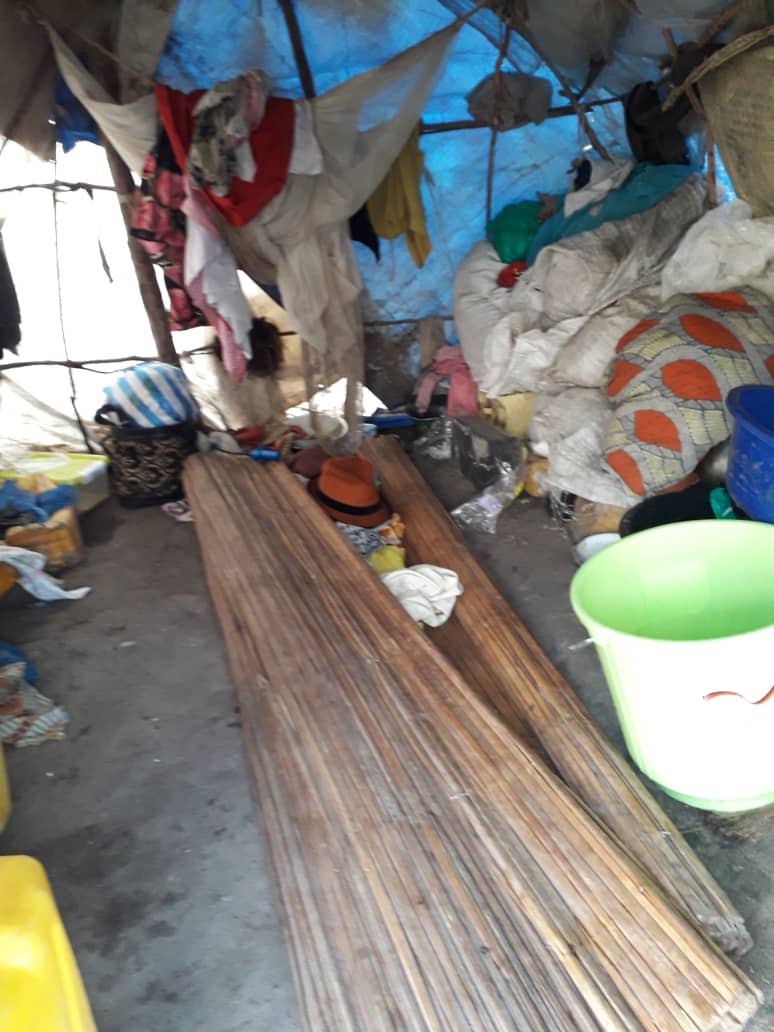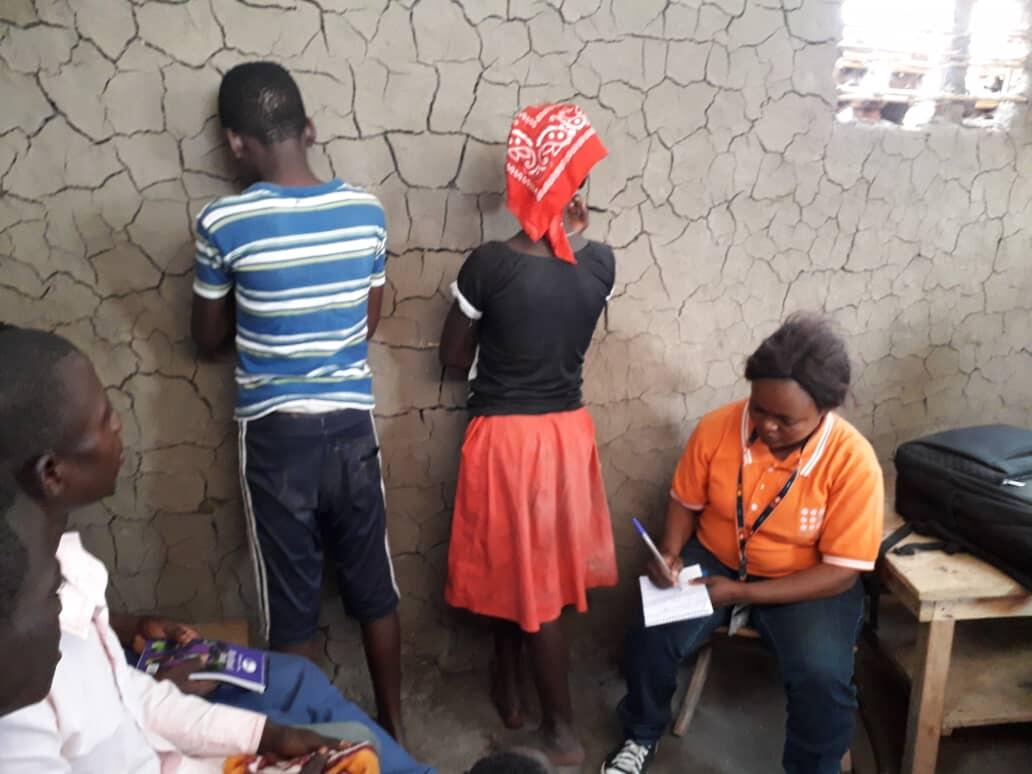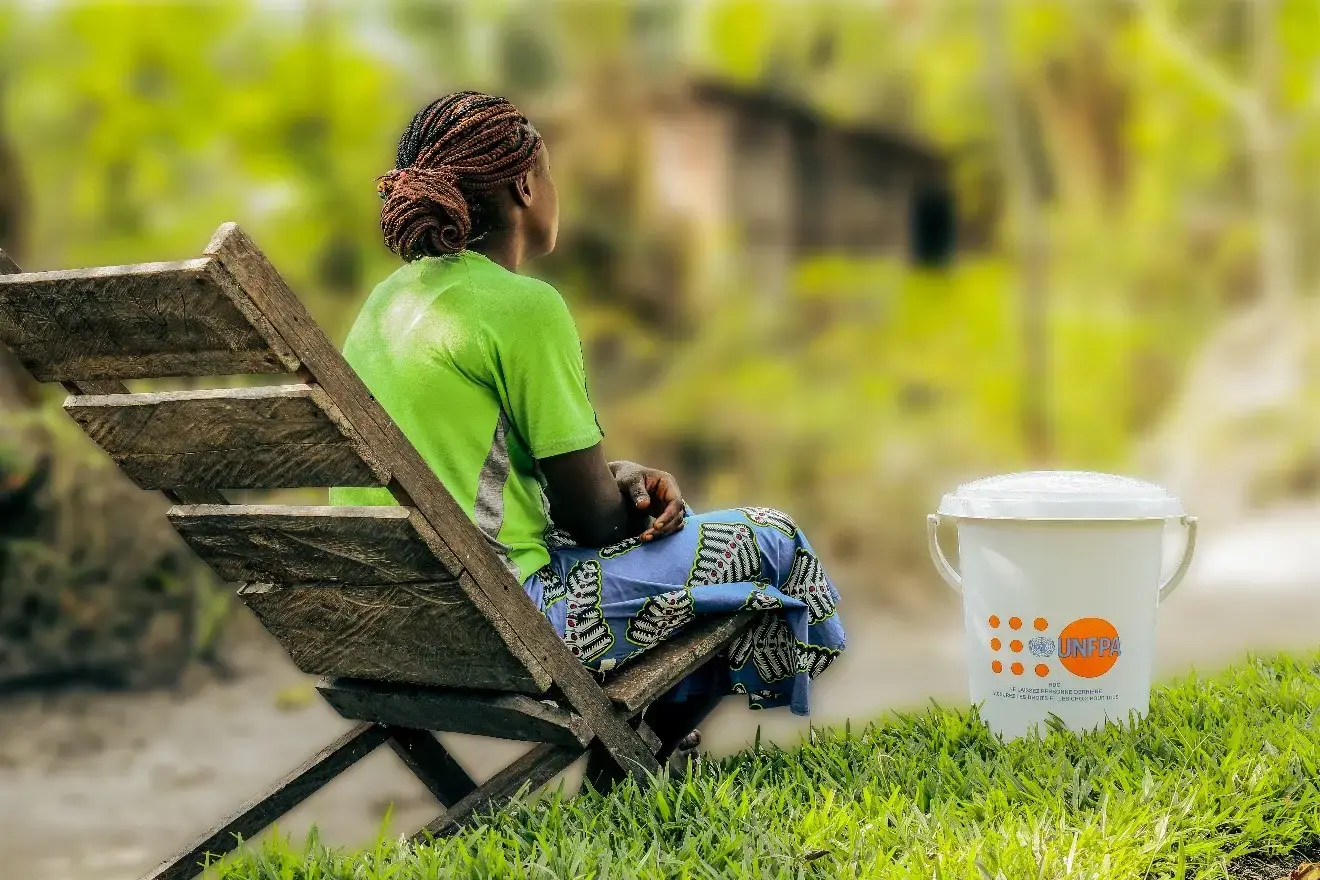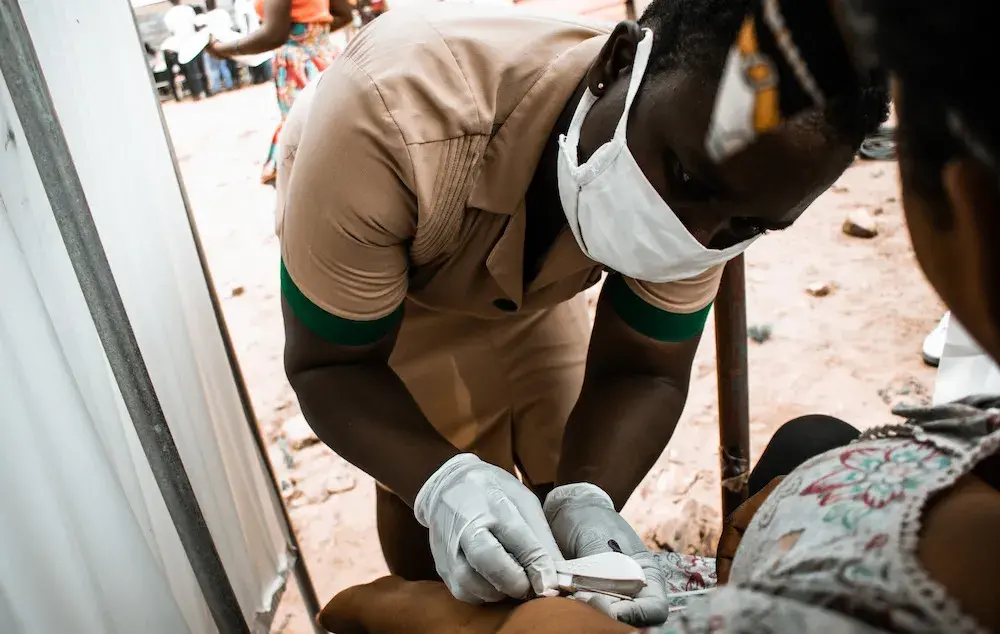One month ago, an 11-year-old girl that we named “Anne” reached a UNFPA supported health facility with her mother, somewhere in the Ituri province. Welcomed by a nurse, she could barely talk and tell her story. She managed to guide the caregiver across the pain in her body, consequences of a brutal rape. She was very frightened, fearing reprisal by her attackers. It took a long time for the social worker to gain her confidence and help her in finding her way.
Like ‘Anne’ there are thousands of women and girls in the Ituri province subjected to gender-based violence, and even more in North Kivu and South Kivu.
“Since the beginning of the year we have seen an escalation of various forms of violence against women and girls in conflict-affected areas of Ituri, Noth Kivu and South Kivu,” said Dr. Sennen Hounton, the Resident Representative of the United Nations Population Fund (UNFPA) in the Democratic Republic of Congo (DRC).
“Women and girls are not only exposed to sexual violence during conflict or displacement, they are also adopting unsafe behaviours that are putting their well-being at further risk. Given a lack of opportunities, displaced women and girls are turning to survival sex to meet basic needs such as health care and food,” said Dr. Hounton. This is why, UNFPA, together with UNICEF, OCHA, Save The Children and MONUSCO and leading a Prevention programme of Sexual Exploitation and Abuse for all humanitarian actors in DRC.
The United Nations Office of the Coordination for Humanitarian Affairs estimates that some 400,000 people have recently fled the conflict in Ituri, 200,000 in the Masisi Territory alone in North Kivu and 180,000 in the Fizi Territory in South Kivu.
Today, “Anne” is still displaced with her mother, sleeping in a camp for internally displaced persons in Bunia. It is not safe for them to return home, but they have found safety in a temporary shelter where “Anne” shares a children’s playground, laughs and smiles and can eventually resume school if displacement lasts.
She took advantage of interventions funded by the United Nations Central Emergency Response Fund (CERF) and implemented by UNFPA to respond to gender-based violence and reproductive health needs. Through this project, UNFPA will be able to ensure reproductive health to 70,000 people and sensitize 600,000 more, during the ongoing emergency. This will ensure an estimated 19,000 safe deliveries, access to modern contraception for 17,000 women, and multi-sector services to 3,954 survivors of GBV in hotspots in six provinces of DRC including Ituri, North Kivu and South Kivu.
In North Kivu, the Ebola epidemic is further challenging the humanitarian response. Less than 30% of health zones affected by Ebola are covered by GBV services. These same health zones are among the priority areas, according to the severity scale of the GBV sub-cluster, the coordination group of GBV actors chaired by UNFPA.
In 2018, GBV actors were able to support 35,709 survivors of gender-based violence with medical and psychosocial care, legal support and socio-economic assistance, according to their needs. During the first semester of 2019, 17,099 GBV survivors received support, a slight increase, but with major gaps in key hotspots.
“I hereby request the donor community to activate commitments that were made at the recent conference in Oslo on Ending Sexual and Gender Based Violence in Emergencies, in the
DRC,” said Dr. Hounton. “GBV actors need renewed support to ensure that life-saving and survivor-centered care is available for women and girls at the very start of a crisis.”
“Non-GBV actors need to get more engaged to mitigate risks for women and girls exposed to violence in crisis,” he stressed. “And we need to prioritize the current hotspots to save lives of Congolese women now,” said Dr. Hounton.
Despite intensification of security operations carried out by the Armed Forces of the Democratic Republic of Congo with the support of the UN peacekeeping force MONUSCO, armed and ethnic violence continues in many localities in South Kivu, Ituri and North Kivu, causing massive displacement and human rights violations.
GBV remains under-reported and under-financed in DRC. “We estimate that the humanitarian community needs $91.7 million US dollars, including $44 M for North Kivu, South Kivu and Ituri, to protect women and girls from GBV risks and care for at least 37,500 survivors of violence in 2019. But we are far from reaching this target, said Noemi Dalmonte, GBV Sub-Cluster Coordinator.
The overall humanitarian action plan in DRC is financed at only 26% and gender-based violence in the country is among the most serious in the world.




